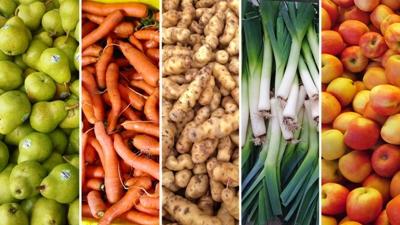MUMBAI, 20 March 2019 : India is predominantly an agricultural country. However, the emergence and rise of other sectors has led to it no longer having an agriculture driven economy. The food processing industry, for instance, makes up about 32% of the total food industry of India. India’s digression from being an agrarian society, have given rise to a number of problems which need to be pointed out and resolved. A large portion of the produce is exported, which makes it surprising that the one area in which India seems to be lacking is Cold Chain. Cold Chain is the process of introducing temperature controlled storage and transportation facilities to prevent rotting of easily perishable food produce.
The bottlenecks encountered when looking to improve the processes are large scale wastage of food, inadequate transportation facilities and lack of technical knowledge. With over 50% of the population engaging in farming opportunities, it becomes imperative to provide services and processes which are capable of aiding this sector. The obvious solution to the problems being faced seems to be Cold Chain Management.
So what are some of the challenges being faced by farmers when it comes to the implementation of Cold Chain? The lack of infrastructure allotted to the cold chain sector seems to be the biggest issue. Without the appropriate technical knowledge, farmers are unable to store produce in a manner which keeps it fresh long enough to be exported. Another glaring issue is that the farmers depend heavily on middlemen. This inefficiency of the supply chain, makes it near impossible for farmers to access those facilities which can help reduce wastage. At the moment, the Cold Chain Market in India is a niche one which assures hygiene, longevity of produce and a boost to the food industry, which will carry it through to the upcoming boom on the global front.
It is important here to note that almost 40% of produce goes to waste due to improper storage and transportation facilities. UK at present stores 70% of its agricultural produce in Cold Chains while India is at only 4%. Implementation of a cold chain management system can reduce food product wastage by almost 75%, thus increasing the capacity to export produce and increasing the overall GDP of India. The advantages of this are manifold – an extended lifecycle for perishable products, reduced wasted of food products and a larger market reach which then leads to a greater customer base.
While the current capacity is nowhere close to being enough to support cold chain management, resolving the issues requires cold storage facilities to be implemented in the supply chain. By cold storage, ISB identifies the following features: Pre-cooling facilities, Refrigerated Carriers, Cold Storages, Warehouse Information Management systems, Financial and Insurance Institutions and Traceability. The fixing of the supply chain also needs to be done in a manner which keeps in mind the requirements of the farmers and should take care to not hamper their livelihoods. On the one hand, investment by Walmart and other such multinational corporations would lead to development of cold chain management systems, as they would need to transport perishable materials countrywide. However, care should be taken that this does not hamper the jobs presently being created for storeowners or single farmers. On the other hand, companies working directly with farmers to implement better supply chain management systems, have reported a 25% increase in prices.
Thus, it is clear that there is not one single approach which will improve the condition of the Indian agricultural market. Rather, a combined approach of taking care of the supply chain, as well as investments by MNCs, will on the whole result in a better process which will benefit farmers. The need to implement cold chain to prevent the wastage of perishable goods needs to be realised on a large scale.
Another critical problem being faced by the food industry is climate change. Recent studies have revealed extreme fluctuations in the weather with increased maximum temperatures and lesser rainfall. In order to prevent these extreme climates from having a long lasting effect on the produce, certain processes can be introduced. For instance, proper transportation systems to reduce post-harvest loss. Small landholders are unable to use large scale preservation and processing technologies, thus resulting in a lot of wastage. Middlemen, upon whom farmers are dependent, are also sometimes forced to sell produce at a price lower than the production cost. There needs to be an implementation of better transport systems, which can store produce at required temperatures, and which is available at a local level.
All in all, we can identify an unorganized supply chain as the major problem faced by farmers in India. An appropriate remedy to this situation, as we can see, is maintaining a proper cold chain system. Proper storage facilities, along with appropriate temperature controlled transportation will help to reduce the problems of wastage which occurs most at the post-harvest stage. Efforts also need to be made to educate farmers regarding the proper steps which need to be taken to manage food better and reduce wastage. If all of these processes are taken care of, Cold Chain could soon become a linchpin in the wheel of the agricultural economy in India!
Writer is Karthikeyan N (Regional Business Manager -North, Snowman Logistics)




















